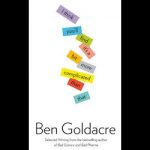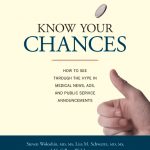Anecdotes are great – if they convey data accurately
Ben Goldacre gives examples of how conclusions based on anecdotes and biased research can be damagingly misleading.
Key Concepts addressed:Details
Ben Goldacre, The Guardian, Friday 29 July 2011
On Channel 4 News, scientists have found a new treatment for Duchenne’s muscular dystrophy. “A study in the Lancet today shows a drug injected weekly for three months appears to have reduced the symptoms they say. “While it’s not a cure, it does appear to reduce the symptoms.”
Unfortunately, the study shows no such thing. The gene for making a muscle protein called dystrophin is damaged in patients with DMD. The Lancet paper shows a new treatment led to some restoration of dystrophin production in some children in a small unblinded study.



